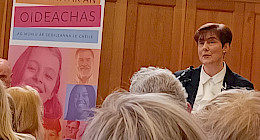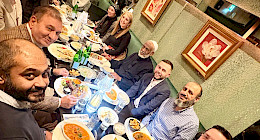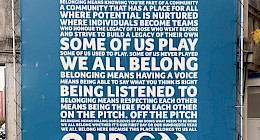
Important Islamic Dates
Find out more about most important Islamic days, from Ramadan to Eid ul-Fitr, Eid ul-Adha to Hajj.
Ramadan
Ramadan is the ninth month of the Islamic calendar. This is the month in which the Quran (The word 'Quran' in Arabic comes from the root word 'qa ra a'. And it means: "recitation" It literally means 'recitation' or 'proclamation') was revealed.
The Quran is the literal Speech of Almighty God to His Archangel Gabriel (Jibreel in Arabic) who then recited the Quran to the Prophet Muhammad (pbuh: peace be upon him). This occured over a period of twenty three years. Muslims are encouraged to read the Qur'an regularly and even more so in the holy month of Ramadan.
"Ramadhan is the (month) in which the Qur'an was sent down, as a guide to mankind, also clear (Signs) for guidance and judgment (Between right and wrong). So every one of you who is present (at his home) during that month should spend it in fasting."
This is the verse of Qur'an (2:185) which mandates the Muslims to fast during the month of Ramadan.

Fasting is very important and it constitutes one of the five pillars of Islam which are the foundation of Muslim life. The pillars are:
- Shahadah: declaring there is no god except God, and Muhammad is God's Messenger
- Salat: ritual prayer five times a day
- Zakat: giving 2.5% of one’s savings to the poor and needy
- Sawm: fasting and self-control during the holy month of Ramadan
- Hajj: pilgrimage to Mecca at least once in a lifetime if one is able
Fasting in Ramadan is not only abstaining from food, drink (including water) and intimate relations with a spouse, as the Arabic word for “fasting” (sawm) literally means “to refrain,” and it refers to also refraining from evil actions, thoughts and words. During Ramadan, every part of the body must be restrained. The tongue must be restrained from backbiting and gossip. The eyes must restrain themselves from looking at unlawful things. The hand must not touch or take anything that does not belong to it. The ears must refrain from listening to idle talk or obscene words. The feet must refrain from going to sinful places. In a way, every part of the body observes the fast.
Ramadan is also a time for spiritual reflection and devoting themselves to worship and pray to Allah. It is a time to purify the soul, refocus attention on God, and practice self-discipline.
Muslims are also required to give to charity – an obligatory charity which is to be paid prior to Eid ul-Fitr (see below) so that the less fortunate can enjoy the benefits of Eid.

Eid ul-Fitr
Beginning at the start of the month of Shawwal – the tenth month of the lunar Islamic calendar – Eid-ul-Fitr or 'festival of the breaking of the fast' in Arabic, signals the end of the Holy Month of Ramadan and is celebrated for three days.
While the fasting month is a symbol of sacrifice and purification, the fast-breaking ceremony of Eid aims at promoting love and brotherhood. The day begins with an early hour bath (ghusl), after which Muslims put on their best or new clothes and eat dates before going to the special Eid prayer ceremonies in nearby mosques.
Interesting facts about Eid al-Fitr
- It is customary to eat breakfast before the special prayer of Eid, as Prophet Muhammad used to eat something sweet before offering his prayers.
- In Muslim countries, Eid is an official public holiday that lasts for three days
- As the crescent moon of Eid appears on different dates in different countries, many Muslim communities celebrate Eid on the day it appears over the sky above Mecca.
- The Eid prayer is different from the regular prayer known as Adhaan. The special prayer can be done anytime between the dawn and midday prayers.
- The Eid sweet delicacies are usually baklava, kataif, kanafe and other special and cultural variations of popular sweets.
- On the day, Muslim families and friends greet each other with "Eid Mubarak" (Blessed Eid) or Eid Said (Happy Eid).
- Children receive gifts in toys, clothing or/and money
- After praying in the mosque, people gather with friends and families, visiting each other and spendig day in a joyous atmosphere.
Eid-ul Fitr is a true thanksgiving day, when Muslims show their appreciation for the health, strength and the opportunities of life, which Allah has given to them to fulfill their obligation of fasting and other good deeds during the blessed month of Ramadan.
Eid ul-Adha
Eid ul-Adha ('festival of Sacrifice'), also known as the Greater Eid, is the second most important festival in the Muslim calendar (the other being Eid ul-Fitr). It occurs about two months after the Eid ul-Fitr during the month of Zil-Hajj. Eid ul-Adha celebrates the occasion when Allah appeared to the prophet Ibrahim in a dream and asked him to sacrifice his only son Isma'il as an act of obedience to God. The devil tempted Ibrahim (Abraham) by saying he should disobey Allah and spare his son. As Ibrahim was about to kill his son, Allah stopped him and gave him a lamb to sacrifice instead.
Eid ul Adha also marks the end of the Hajj pilgrimage (the fifth pillar of Islam)
Today Muslims all over the world who can afford it, sacrifice a sheep (sometimes a goat) as a reminder of Ibrahim's obedience to Allah. In Ireland, the animal has to be killed at a slaughterhouse and it is purchased as usual in a butcher shop. The meat is preferred to be divided into three parts. The family retains one third of the share; another third is given to relatives, friends and neighbors; and the remaining third is given to the poor and needy.
Similarly to the Eid ul-Fitr, Eid ul Adha begins with Muslims going to the Mosque for a special Eid prayer, while dressed in their best clothes and thanking Allah for all the blessings they have received. It is also a time when they visit family and friends as well as offering presents. In Muslim countries it is a public holiday.
Hajj
In order to understand the context of Eid-ul-Adha, one must describe the Hajj with which it is associated. Allah had made the Hajj mandatory upon mankind initially during the time of Prophet Abraham:
“And make a proclamation of Hajj to mankind; they will come to you on foot and on lean camels from every distant quarter.” (Quran: 22:27). Over time, however, the spread of idolatry across Arabia caused the rituals of hajj to become extremely distorted. With the advent of Islam and Prophet Muhammad (pbuh), Allah had reinstated Hajj as the fifth pillar of Islam, and described the correct manner in which it was to be performed.
Every year, millions of Muslims from around the world make the journey to Mecca, Saudi Arabia, for the annual pilgrimage. Dressed in the same simple white clothing to represent human equality, the pilgrims gather to perform rites dating back to the time of Ibrahim (Abraham) (peace be upon him).
It is one of the largest pilgrimages in the world and is the fifth pillar of Islam, a religious duty that must be carried out at least once in their lifetime by every able-bodied Muslim who can afford to do so.
"Hajj thereto is a duty mankind owes to Allah, those who can afford the journey, but if any deny faith, Allah stands not in need of any of His creatures". (3:97)
The Hajj occurs from the 8th to 12th day of Dhu al-Hijjah, the 12th and last month of the Islamic calendar. Because the Islamic calendar is a lunar calendar, the Gregorian date of the Hajj changes from year to year.
Compiled from various sources and adapted for MPEB by the Web administrator




